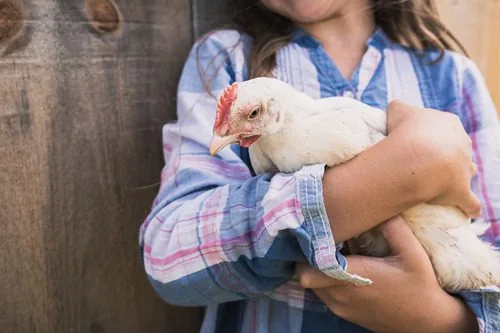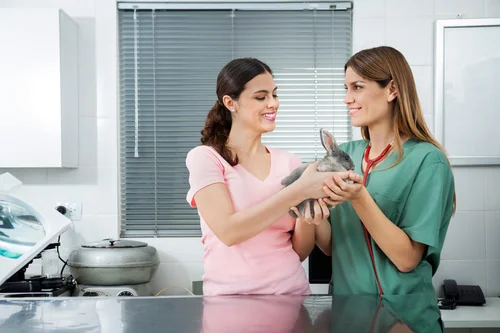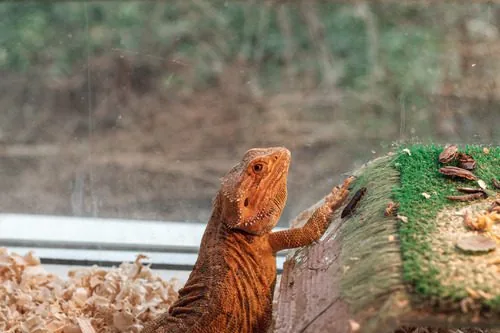What are Exotic Pets near Northshore, LA?
When hearing something described as “exotic”, most people would imagine tropical rainforests on equatorial islands, or a unique cuisine they’ve never experienced. It’s something new and foreign, something the average person doesn’t experience in everyday life.
When “Exotic” is used in reference to animals, we’re not necessarily using it to depict tigers and ocelots and poisonous reptiles. While those animals definitely fit into the category, in veterinary medicine the term “Exotic Pet” includes pretty much anything that isn’t canine, feline, or livestock. This can include a wide variety of species.
Avian exotics
Avian exotics can include birds of all sizes, like parakeets, cockatiels, parrots, macaws, cockatoos, pigeons, doves, birds of prey, and more.
Mammalian exotics
Mammalian exotics can include mice, rats, ferrets, rabbits, guinea pigs, chinchillas, hamsters, hedgehogs, sugar gliders and more.
Other exotics
Other exotics include chelonians (tortoises and turtles), reptiles (including snakes, iguanas, bearded dragons, geckos, anoles, and more.
Some people would qualify micro or mini pigs as exotic pets too, but this is a grey area and some veterinarians near Northshore, LA, even those who practice on exotics, would disagree with the “exotic” label because they truly are a livestock species.
Veterinarians for Exotic Pets
While all veterinarians have exposure to exotic pets at some point during their schooling, most veterinarians graduate with their doctorate degree and go straight to work either in Small animal (dogs and cats) or Large animal (livestock and equine) medicine. There are some veterinarians who do both Small Animal and Exotics medicine, but few veterinarians specialize in only Exotic animal medicine.
Different Species, Different Medicine
A common misconception is that exotic mammals, such as rabbits, guinea pigs, and chinchillas, are just like small dogs and cats. The truth is, they’re very different biologically and so treating their ailments can get complicated quickly. A rabbit’s digestive tract is most similar to that of horses. You read that correctly— a rabbit is more biologically similar to a horse than a cat. And chinchillas are actually rodents— this means they’re more similar to guinea pigs, rats, and even porcupines!
Creatures like birds and reptiles are even more dissimilar- they’re not mammals, and their bodily functions and healthcare needs are vastly different from your average house pet.
 Caring for Exotics
Caring for Exotics
It’s important to remember that all animals are living beings, whether they’re mammals, birds, reptiles, amphibians, etc. Living beings require diligent husbandry, species- appropriate diets, and routine veterinary check-ups near Northshore, LA. It is extremely important to research any animal’s habitat, nutritional, and medical care requirements before purchasing or adopting one. Ensuring they’re eating what they’re supposed to, or living with the right bedding, temperature, and humidity, can truly be the difference between a life well lived, and suffering a slow and terrible death.
Even though they don’t need vaccinations, or parasite prevention medications, it’s still important to take exotic pets to a vet Near Northshore, LA for routine veterinary check- ups. Ideally once or twice a year, every year, for life. Having regular vet exams can help you detect problems early, and get them fixed before something goes terribly wrong.
The other reason to go to a vet for routine care is to establish a relationship with a veterinarian who is comfortable handling the species you have. If they’ve seen your pet every year for 3 years, and you bring them in when they’re sick, it will be that much easier for the veterinarian to try to determine what’s going wrong.
Exotic Animal Emergencies
Exotic pet emergencies are sometimes hard to recognize because these animals tend to mask illness VERY well. Most of them are smaller prey animals who, if they show signs of weakness, could end up as another animal’s lunch. Because of this, if the person responsible for their care isn’t watching them carefully on a daily basis, they could become mortally ill and even die without someone noticing they were sick to begin with. Because of this, it’s really a good idea to bring your exotic pet to the vet near Northshore, LA any time you notice that something is not quite right.
So What is an Exotic Pet Emergency?
It goes without saying that any acute injury is an exotic pet emergency. Limping, broken bones, lacerations, bite wounds, eating something toxic, or any other trauma (like being squeezed or dropped) should be immediately treated by a veterinarian.
In reality, because animals are experts at masking illness, any abnormal sign can be considered an exotic pet emergency, and warrants a same-day vet visit.
Avian (Bird) Emergencies
There are a variety of signs that can indicate your bird is sick. Some outward signs include fluffed up feathers, obvious difficulty breathing, hanging head, tail bobbing, or even feather plucking. It’s also extremely concerning if their appetite declines, if they’re not perching normally, if they vomit, or if their urates are abnormal or absent.
Small Mammal Emergencies
If you have multiple small mammals living in one enclosure, and you notice most of them are bullying or barbering one cagemate, it’s possible that cagemate is sick. Any change in appetite is very concerning, and any observation of weight loss. Vomiting, changes or lack of urination or bowel movements, or abnormal bowel movements are also indications of illness. When small mammals get sick, they can decompensate rapidly, so even if you only notice one abnormality one time, it’s best to intervene as soon as possible.
Reptilian Emergencies
Reptiles are a bit more complicated, even more so than birds or small mammals. They’re what we call “cold blooded”- their body temperature is completely dependent on their environment. Because of this, even slight variations in temperature can be disastrous long-term. They can also suffer from metabolic bone disease if they’re not fed appropriately and don’t have UV lighting. This disease can literally cause their bones to break. If you have obtained a reptile from someone who didn’t care for it appropriately, it’s a good idea to get it to a vet immediately for evaluation.
As with other species, changes in appetite or activity, evidence of weight loss, or changes in/absence of urates are very concerning. Different from other species though, is one outward sign that needs to be closely monitored- shedding. All reptiles, even turtles and tortoises, shed dead layers of their scaly skin. Some more often than others. Some in full-body pieces, some a scale or two at a time. If shedding isn’t happening on schedule, or pieces are getting stuck, it’s not as simple as just pulling them off. Serious, potentially deadly infections can result from inappropriate sheds.
Take Them to the Vet Near Northshore, LA!
Realistically, exotic animals mask signs of illness so well that the best rule to live by is to go to the vet near Northshore, LA whenever you think something is wrong. Handling illness at the first sign means less suffering for your pet and also less expense for you in the long run especially when dealing with exotic pet emergencies. Consider establishing care with a local veterinarian who sees exotic pets, so that if/when something goes wrong, you have a trusted resource to reach out to.
If you have questions or need a vet who sees exotic pets. Contact Avian & Exotic Animal Hospital of Louisiana today at (504) 455-6386.
Recent Posts
About Avian & Exotic Animal Hospital of Louisiana
Avian & Exotic Animal Hospital of Louisiana, formally West Esplanade Veterinary Clinic, is Louisiana’s only veterinarian that provides care exclusively to avian and exotic pets. From parrots to rabbits and ferrets to a wide variety of reptiles, as well as a multitude of small mammal exotic pets, we welcome them all to our practice!

 Caring for Exotics
Caring for Exotics



